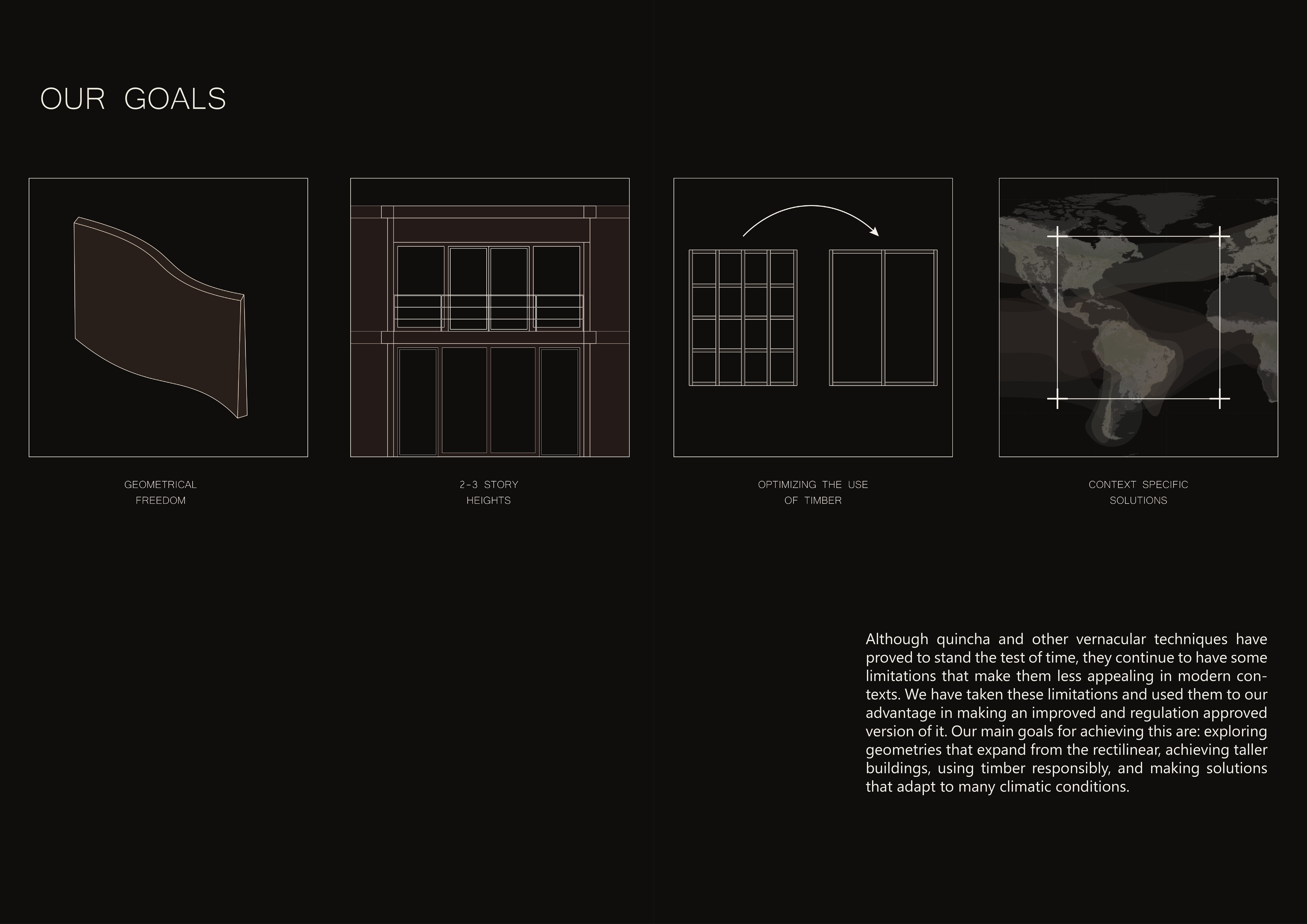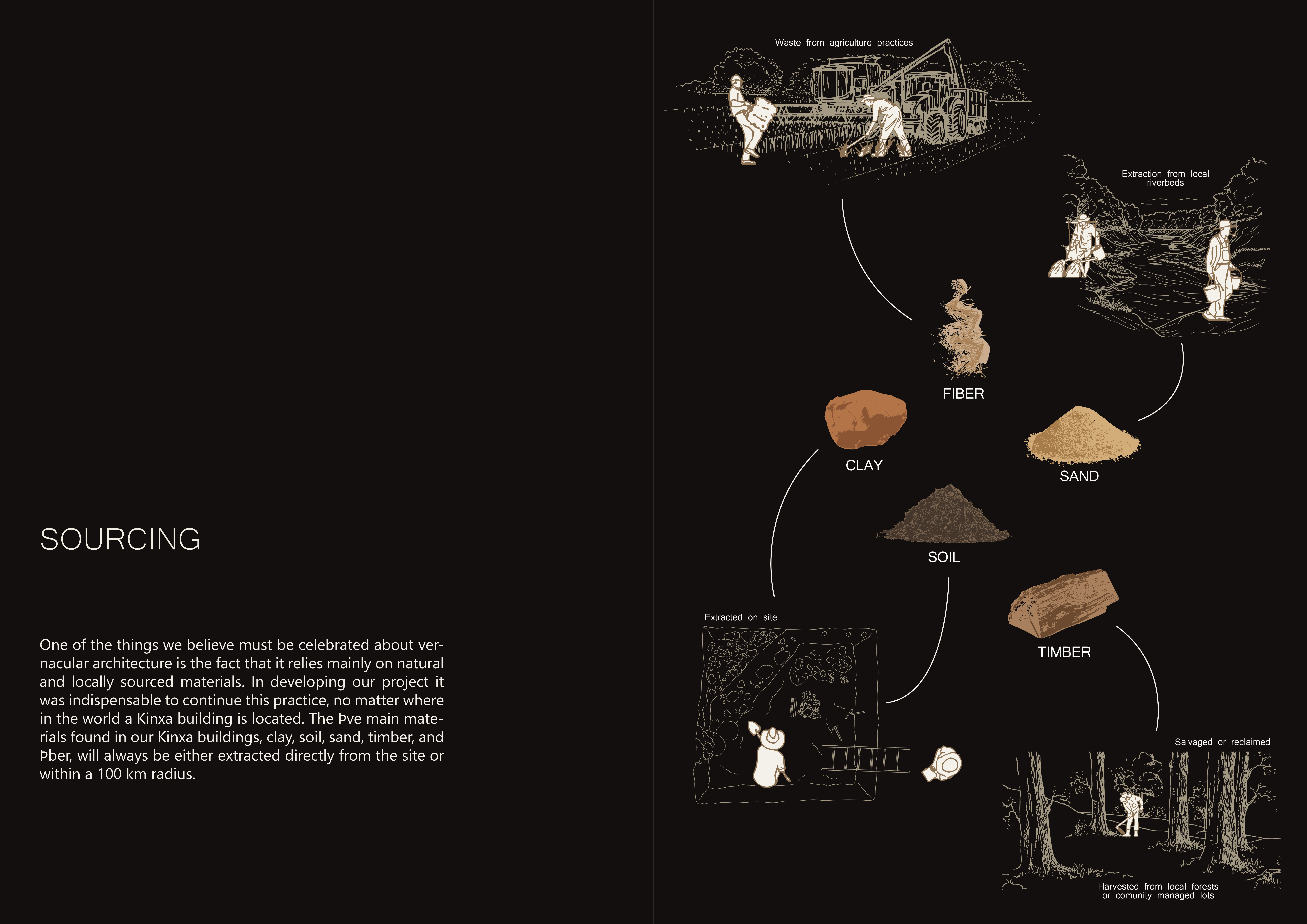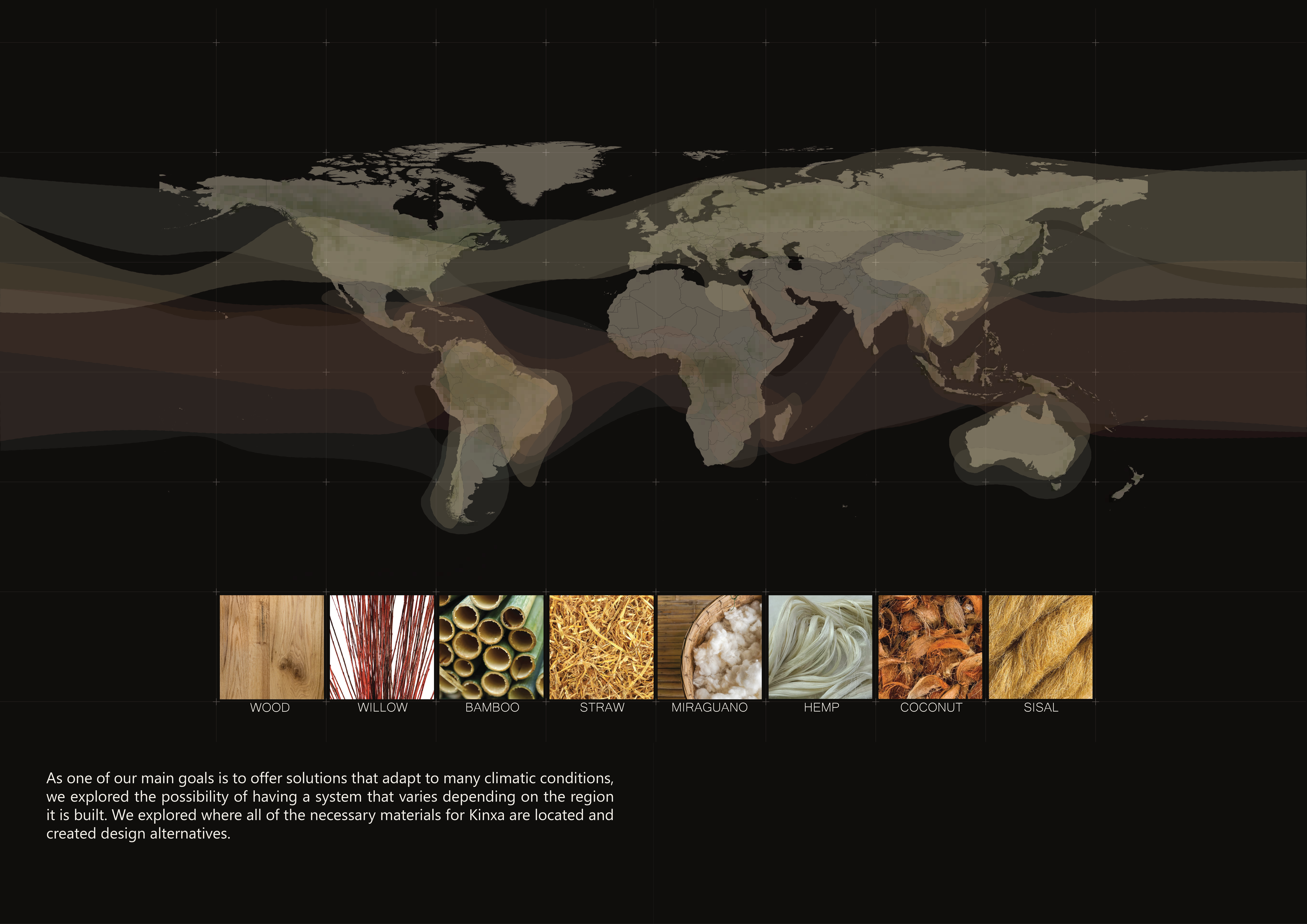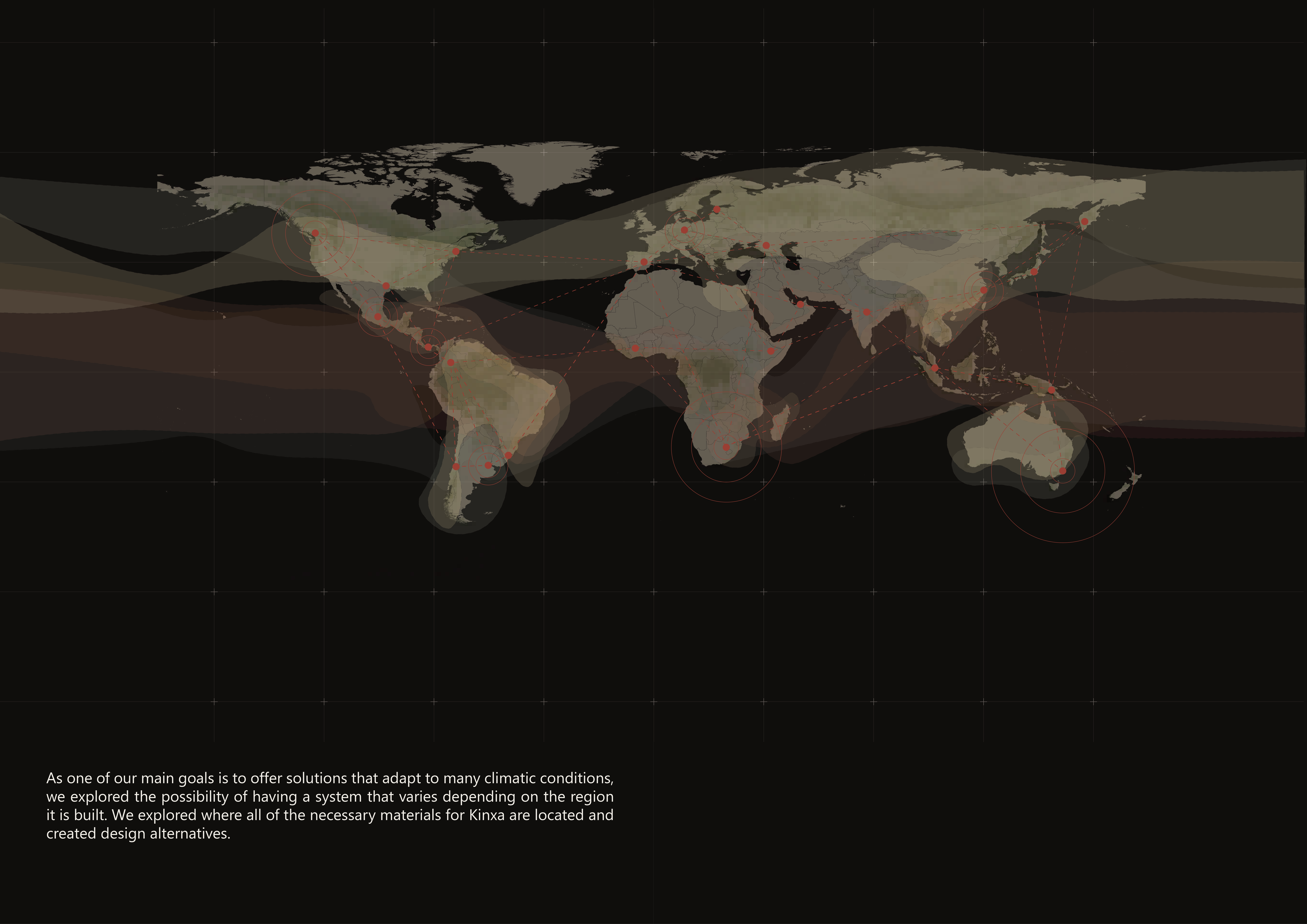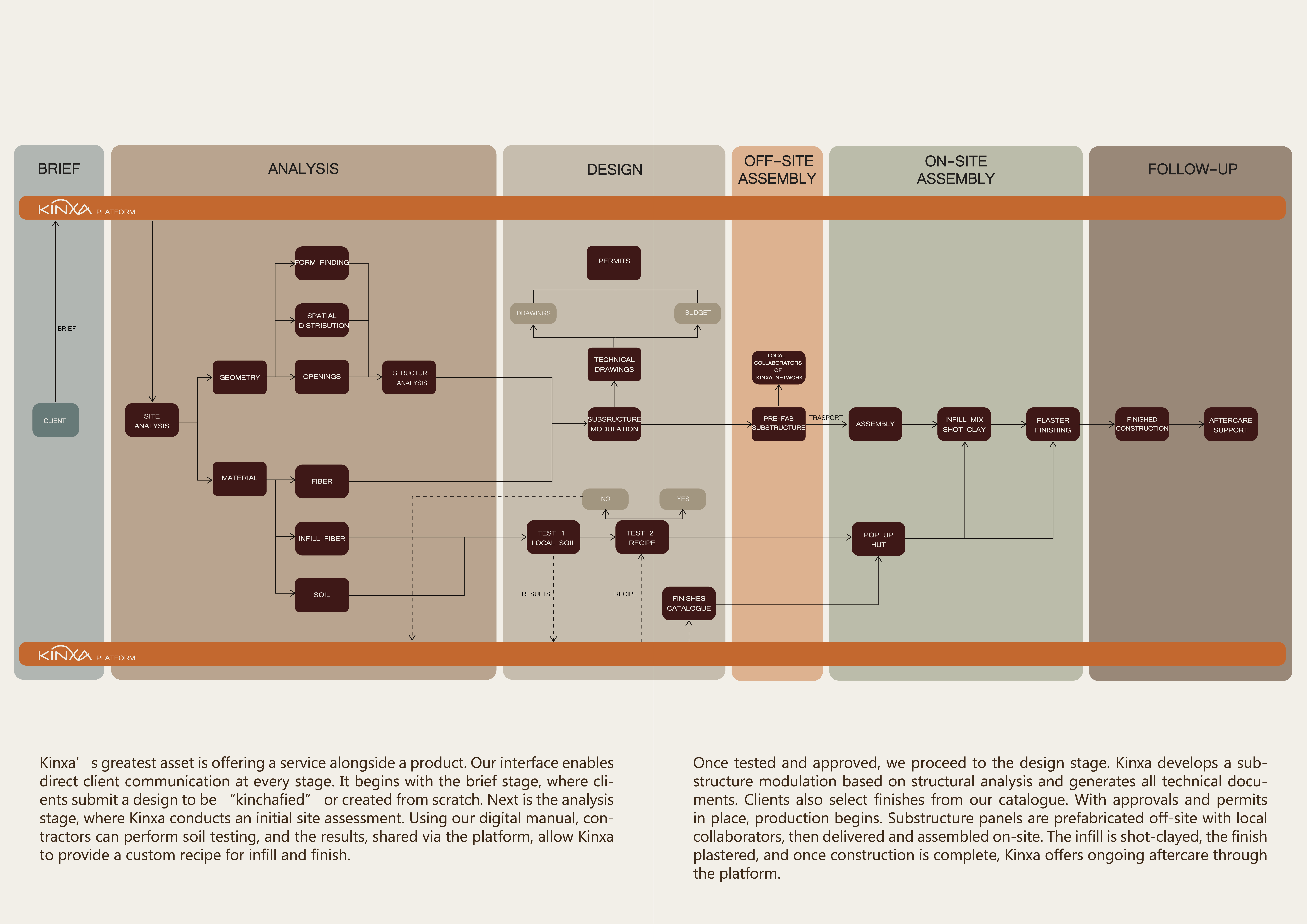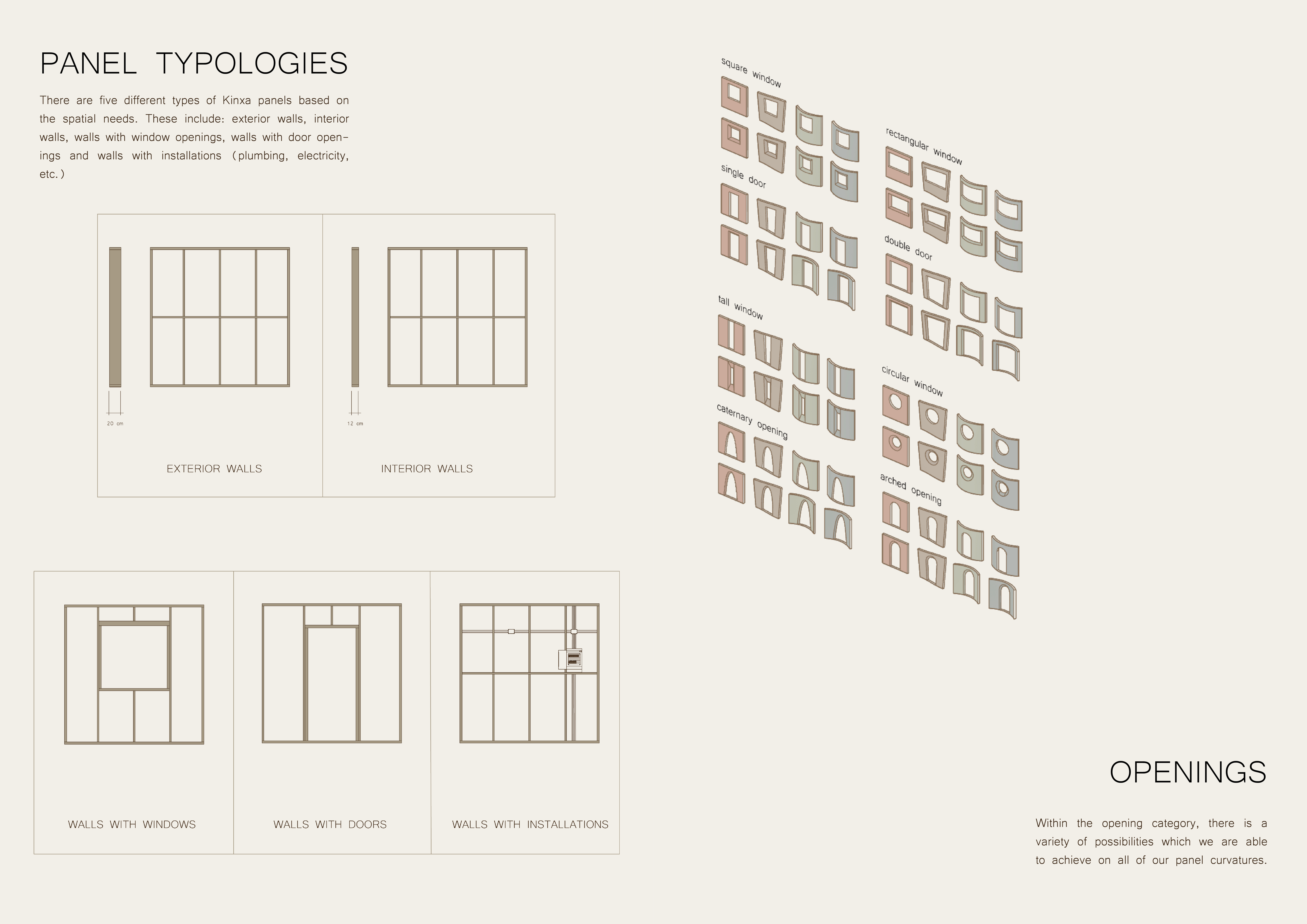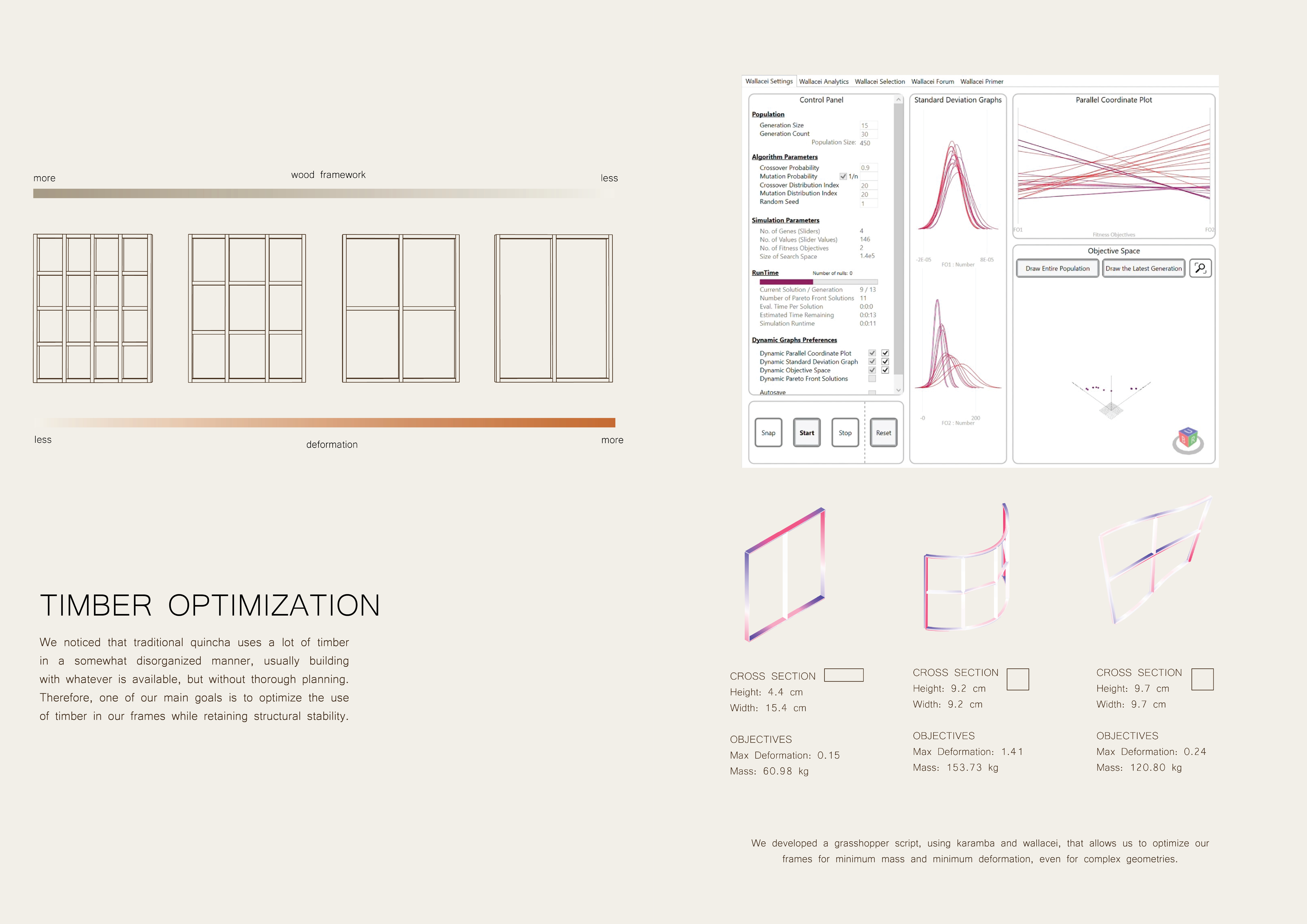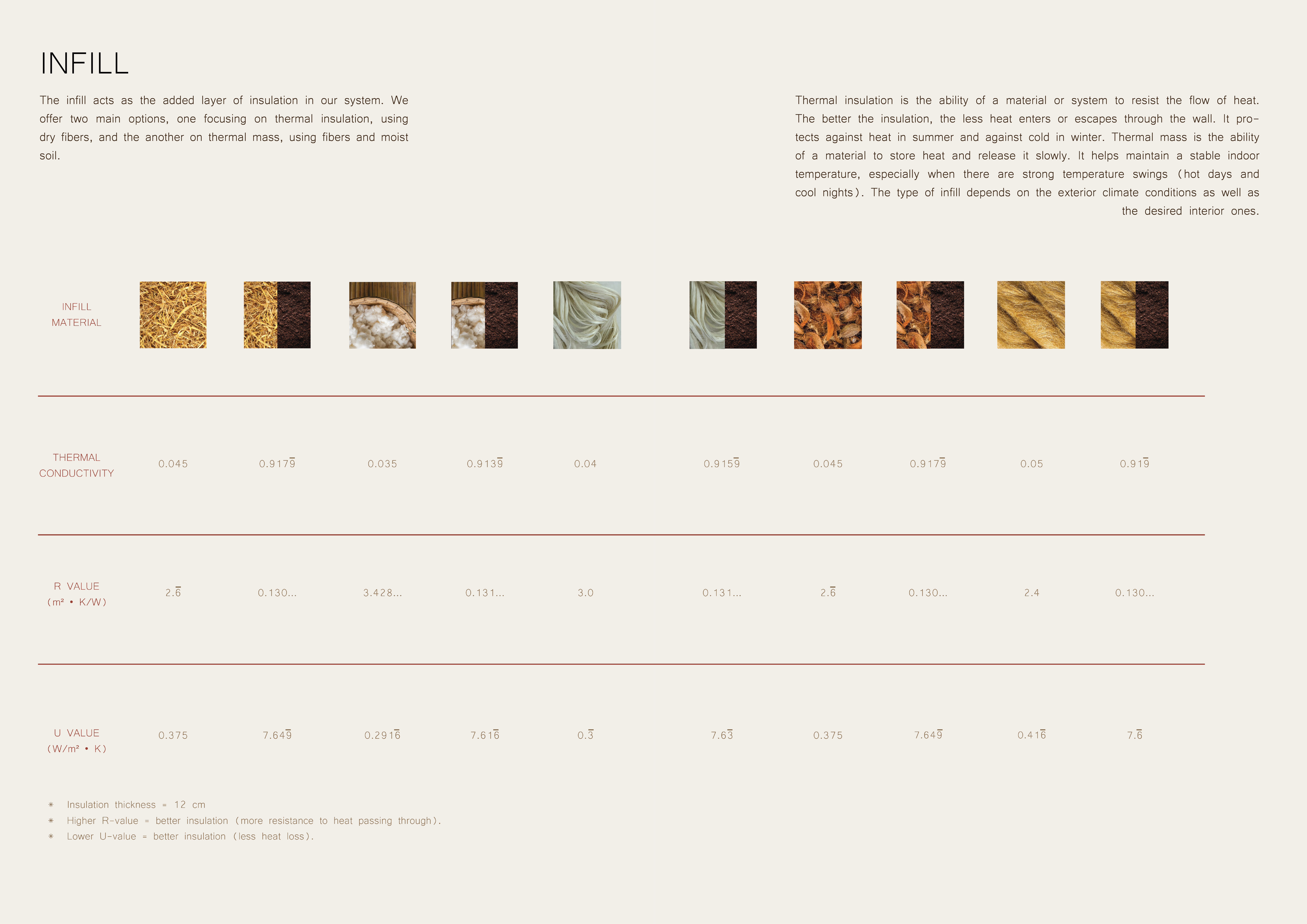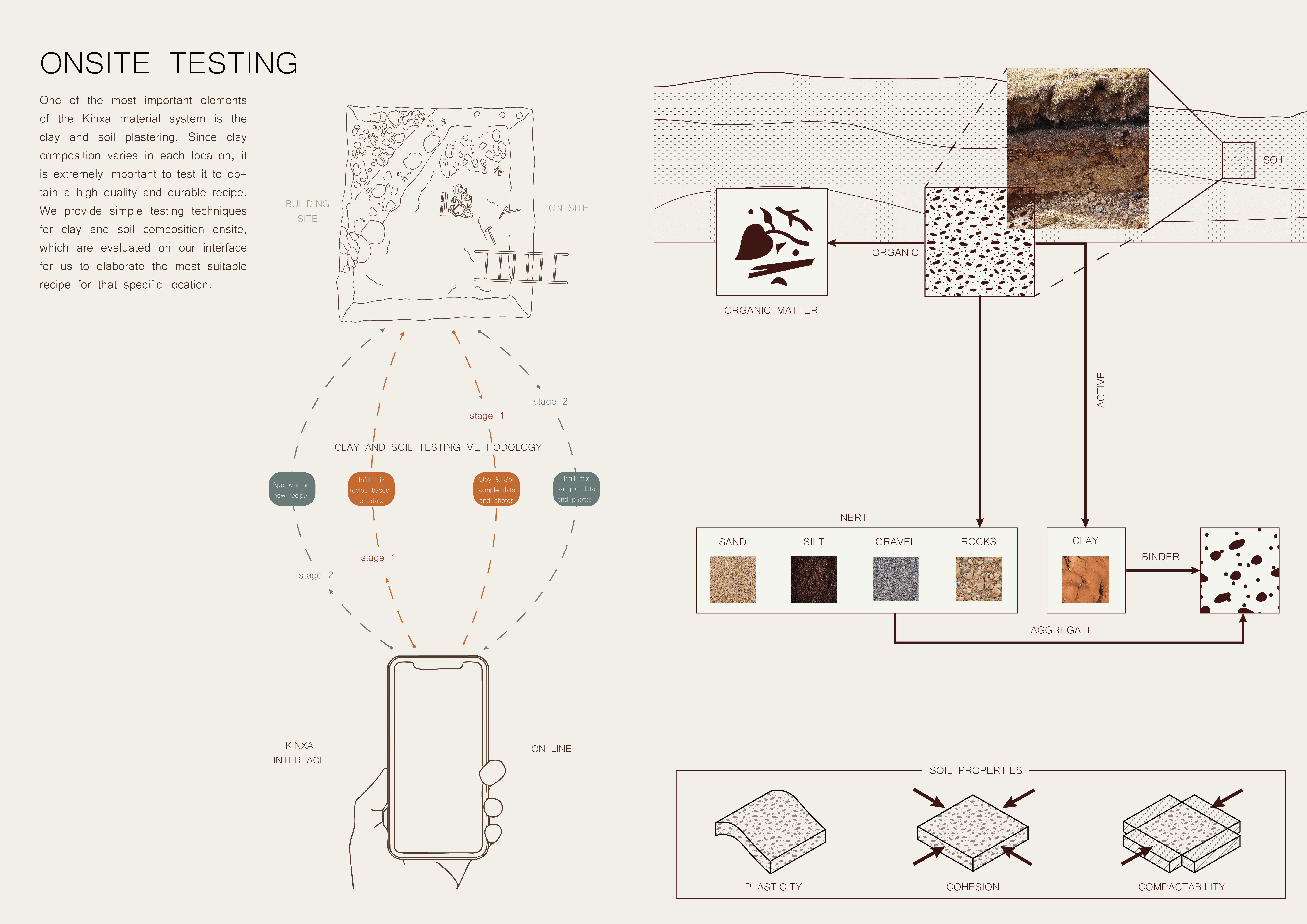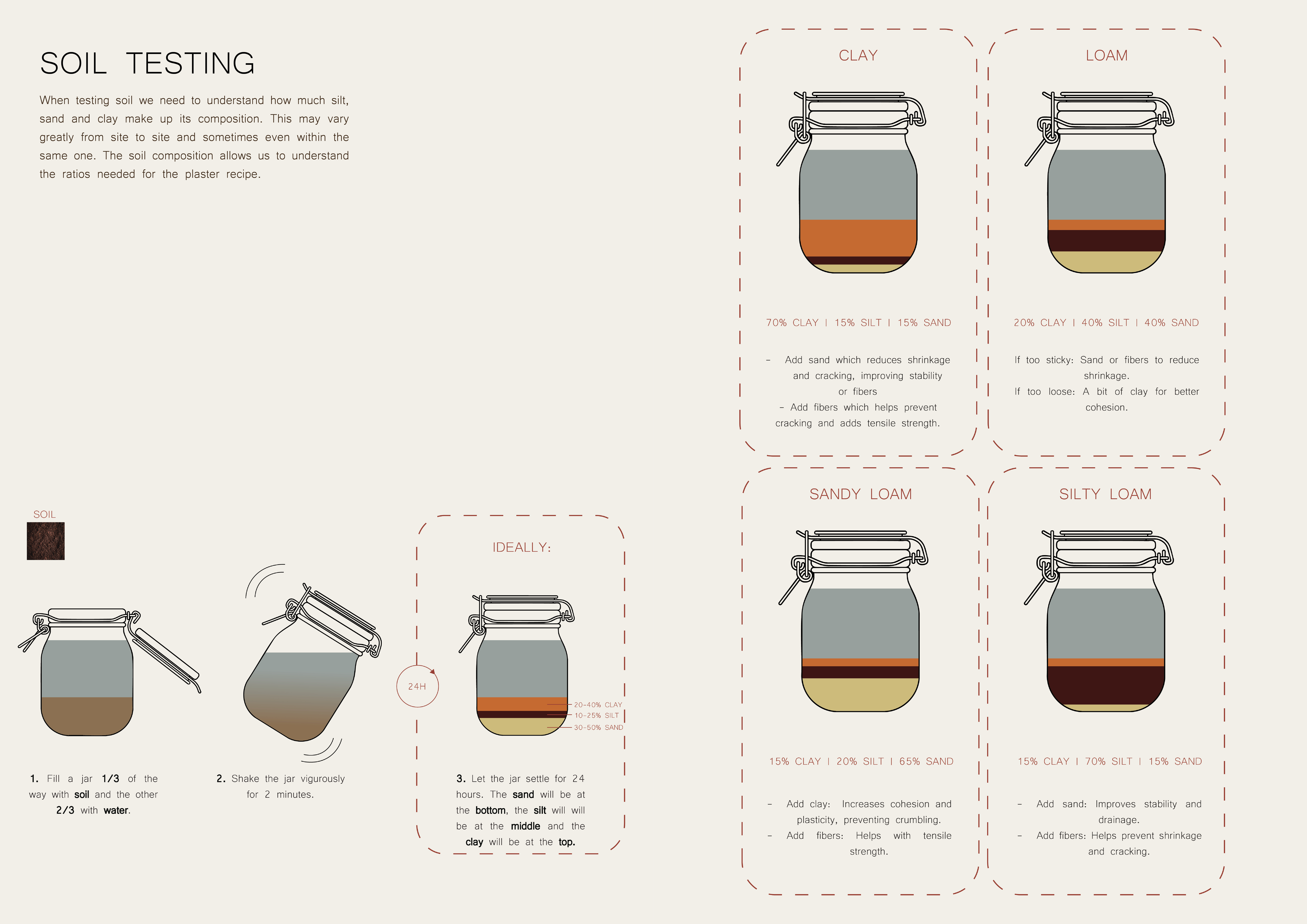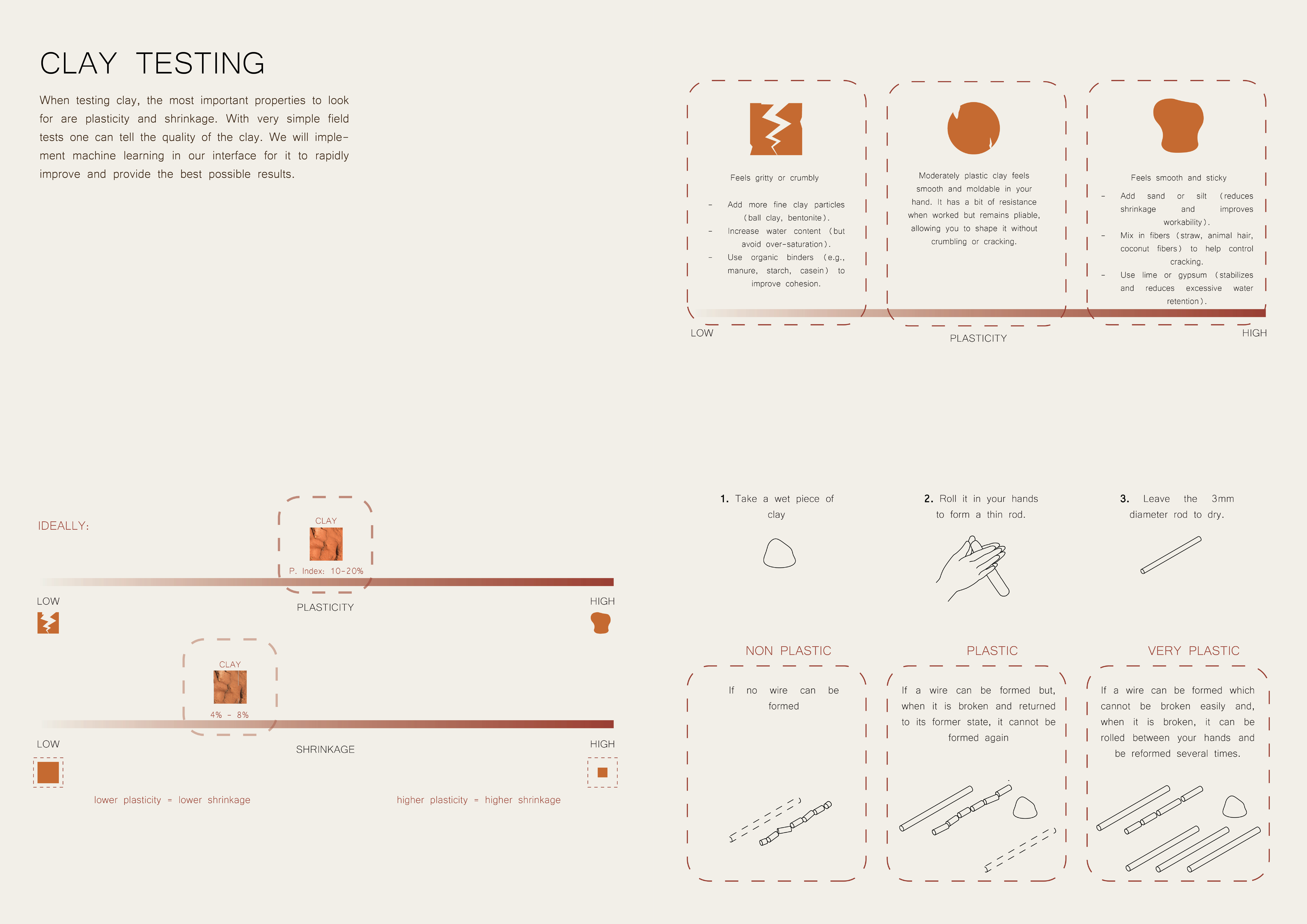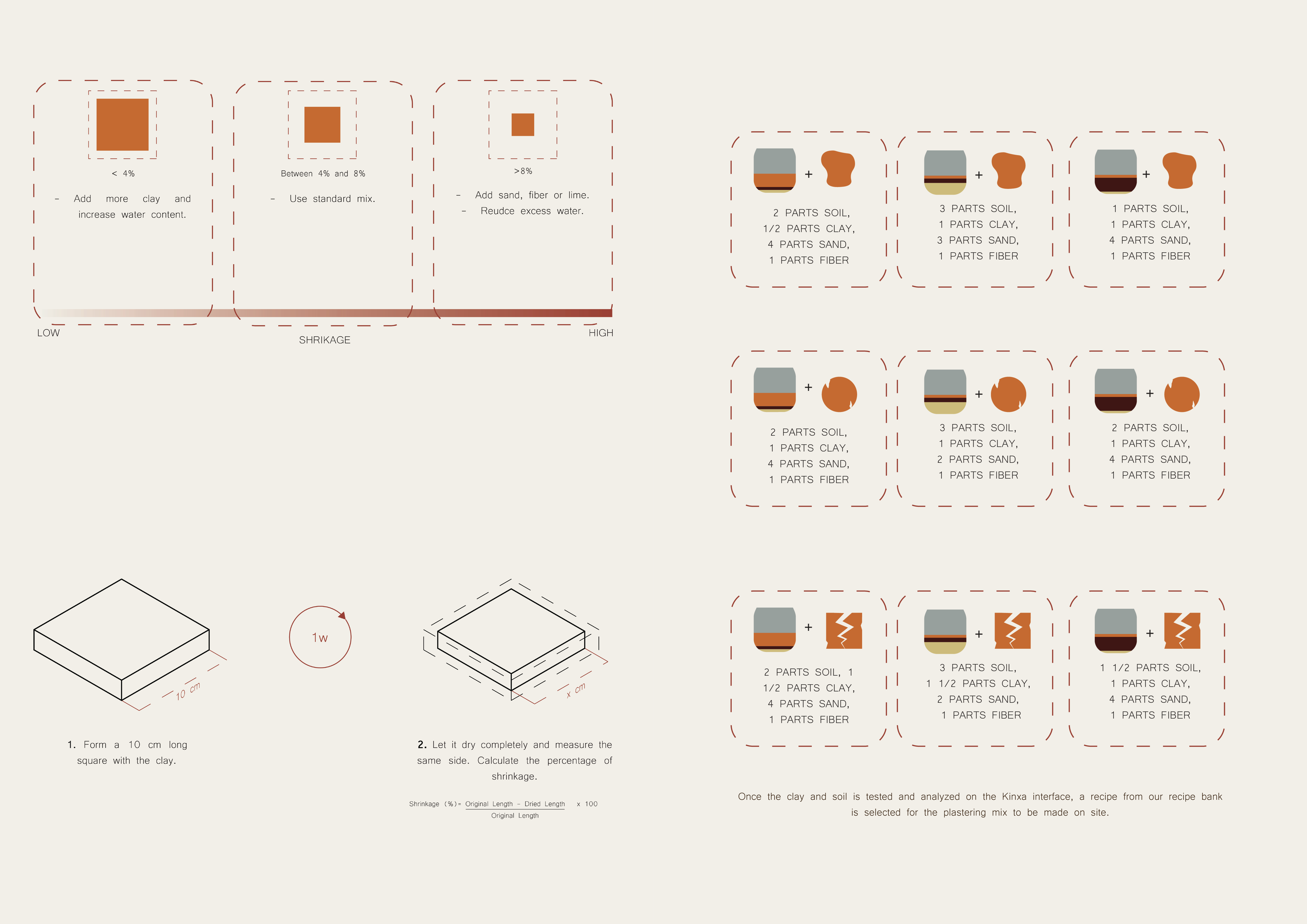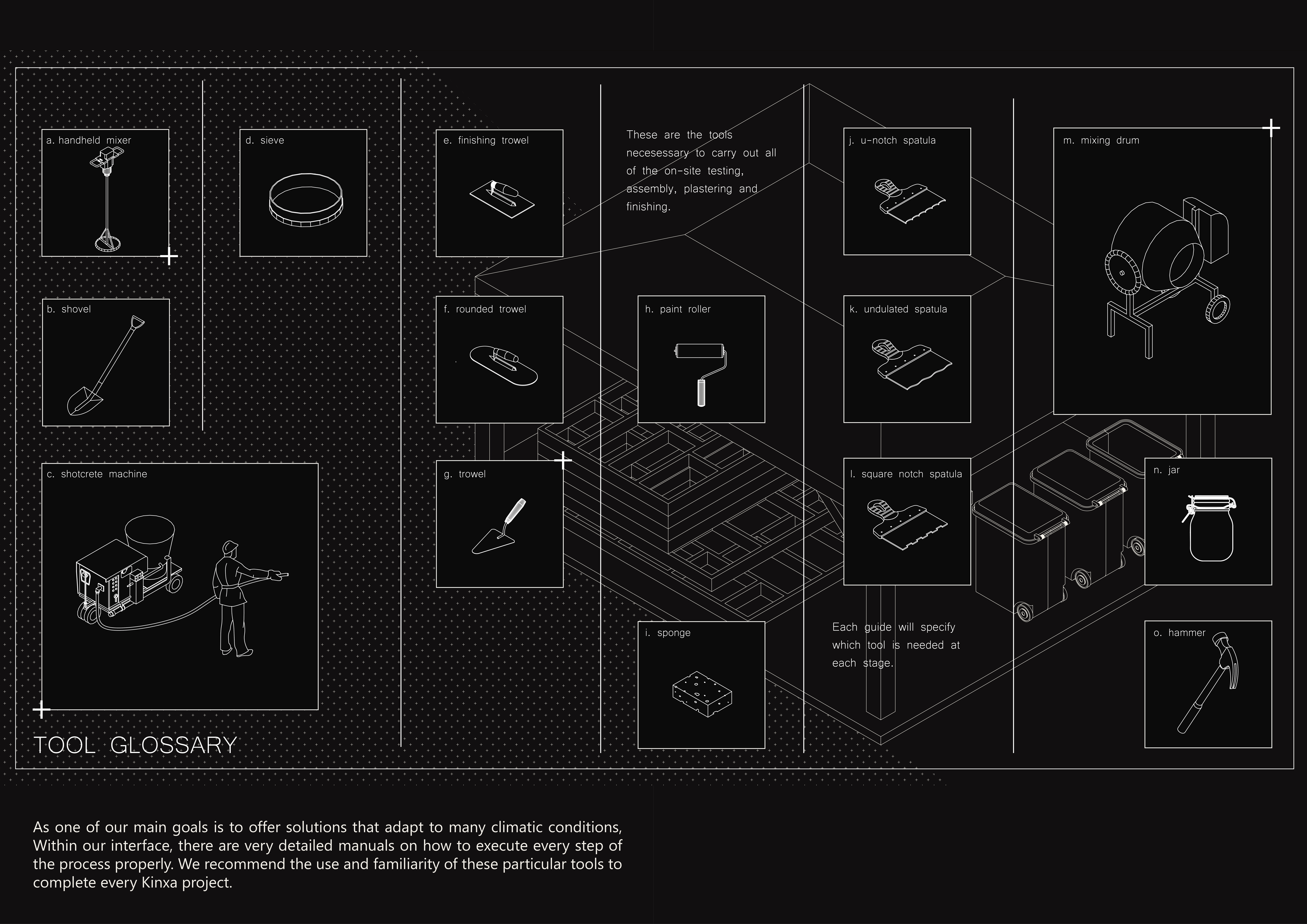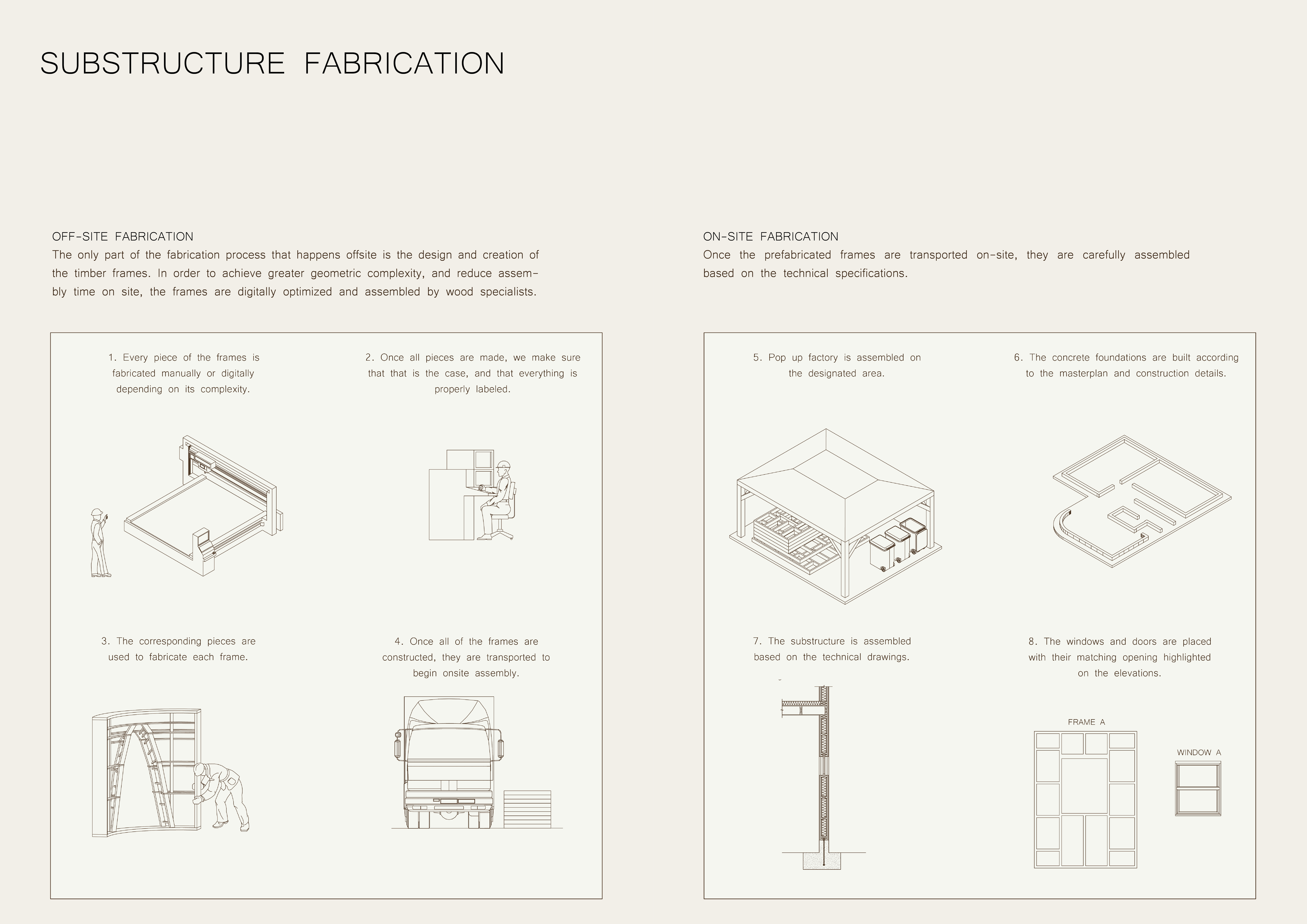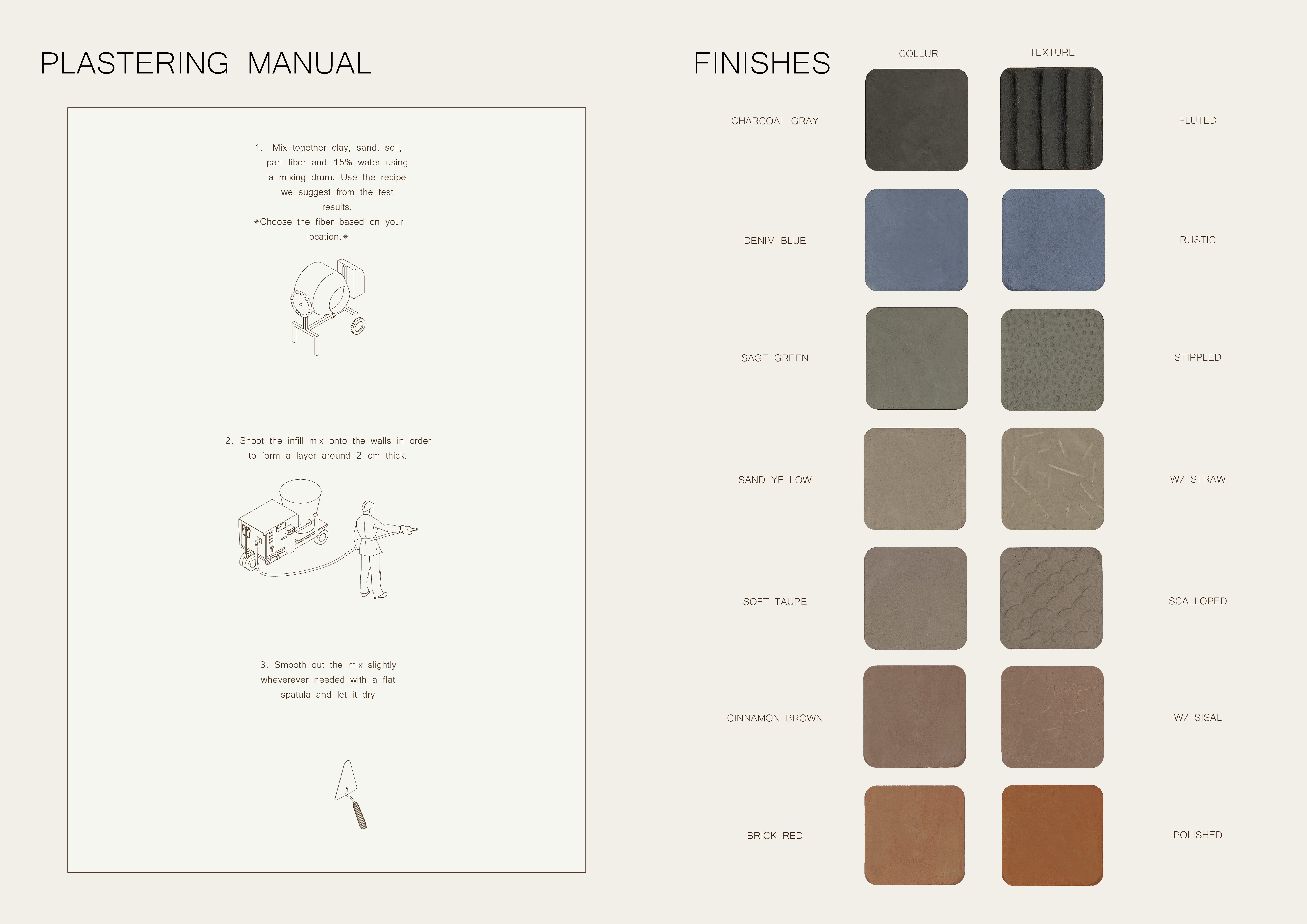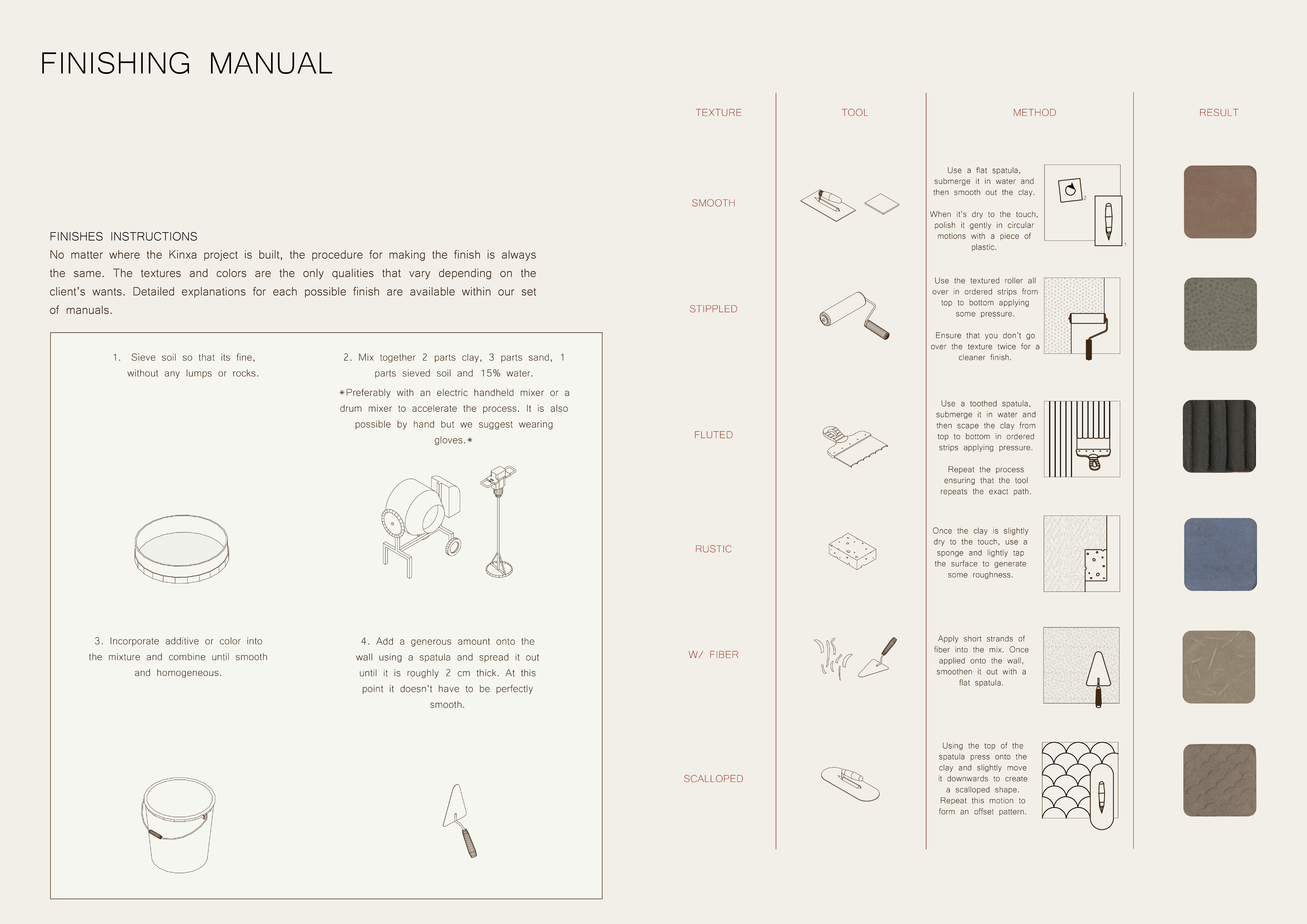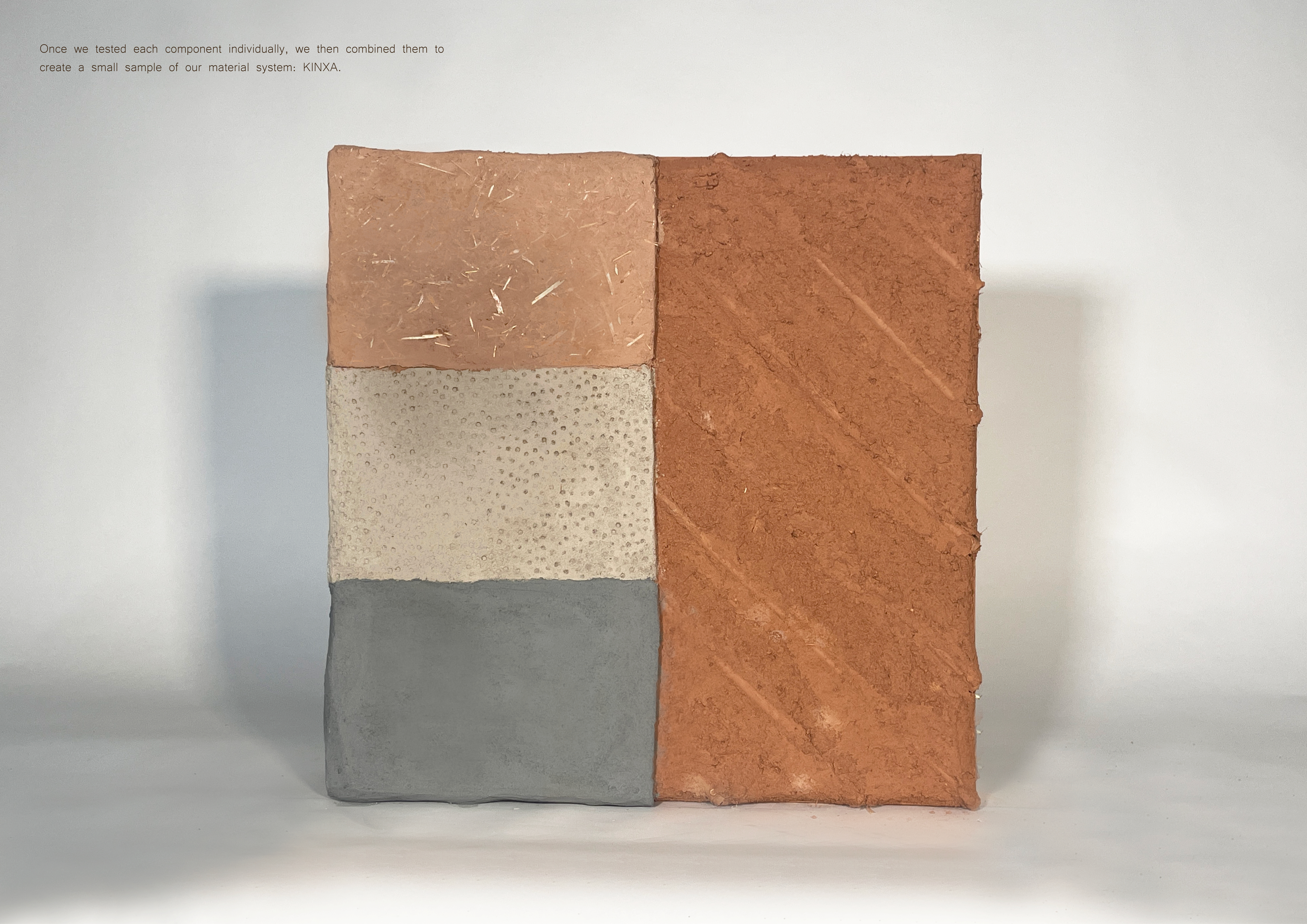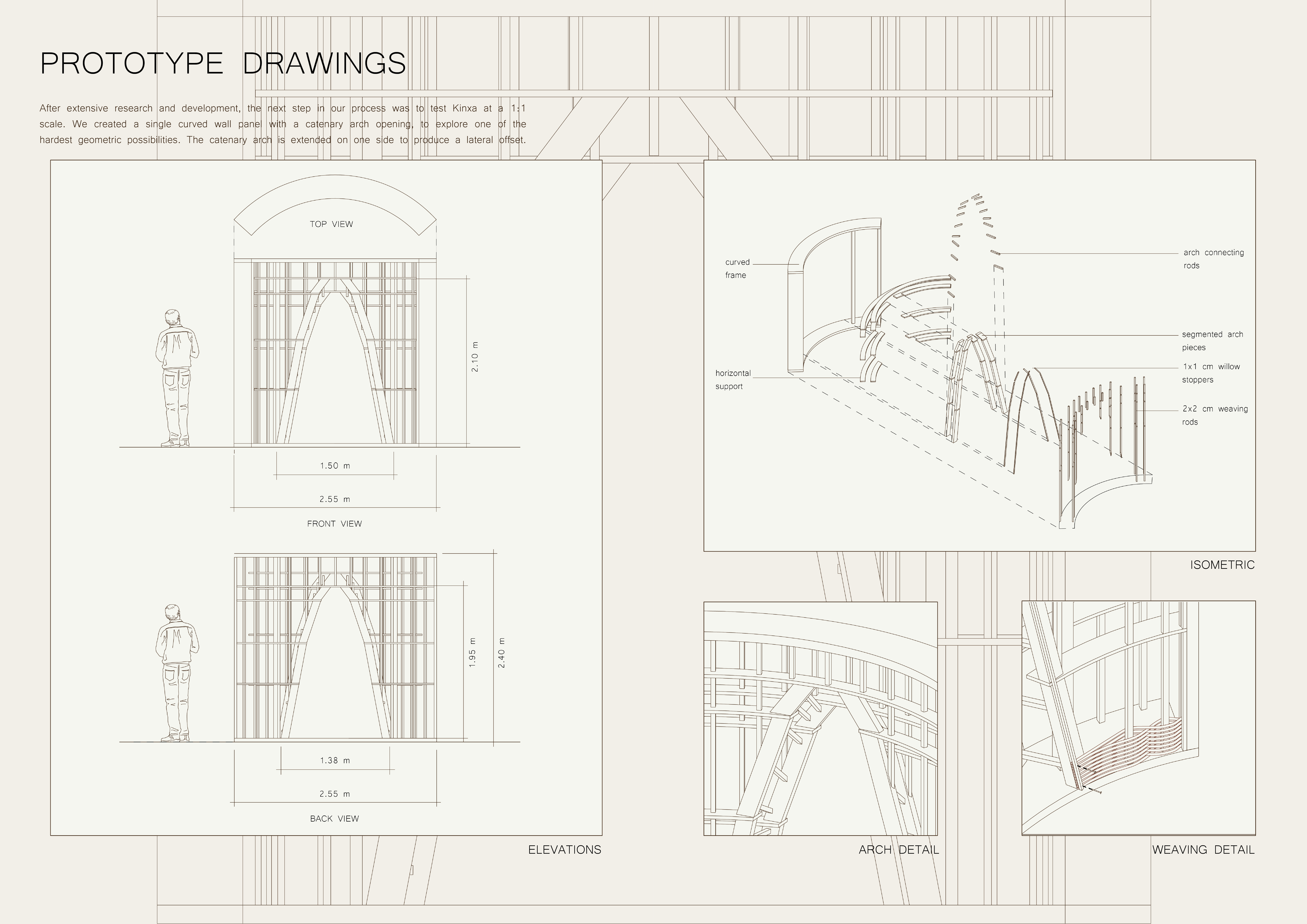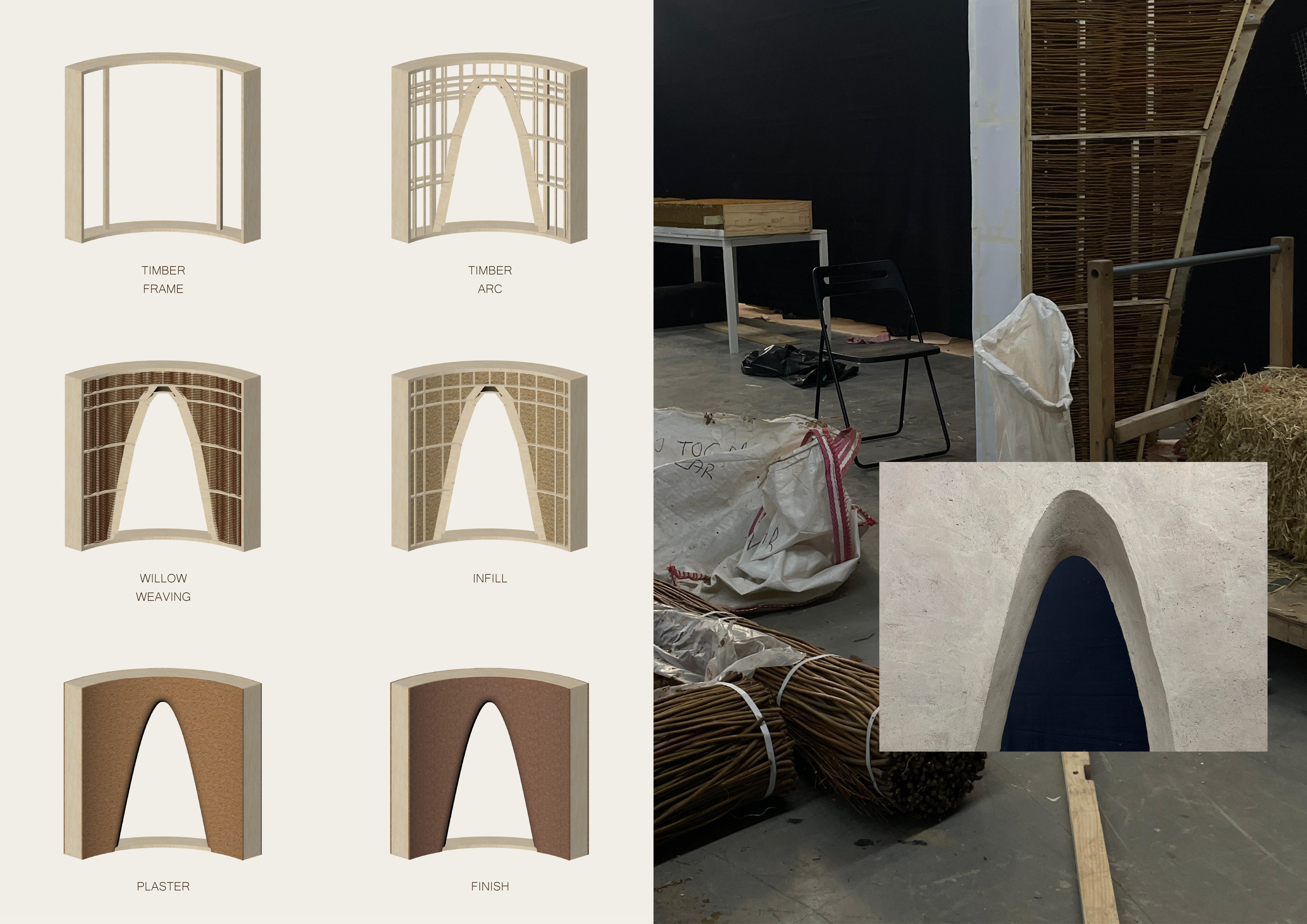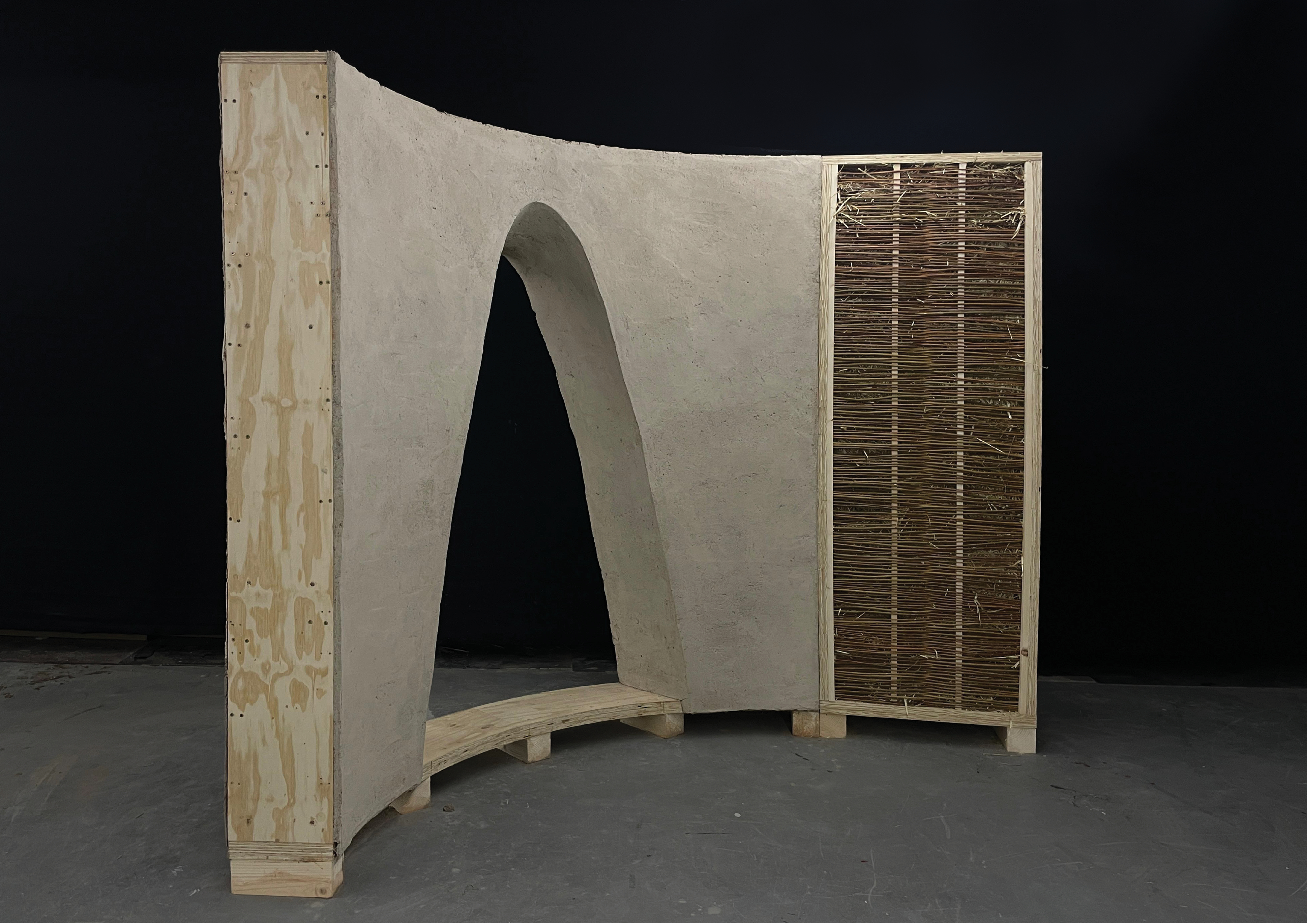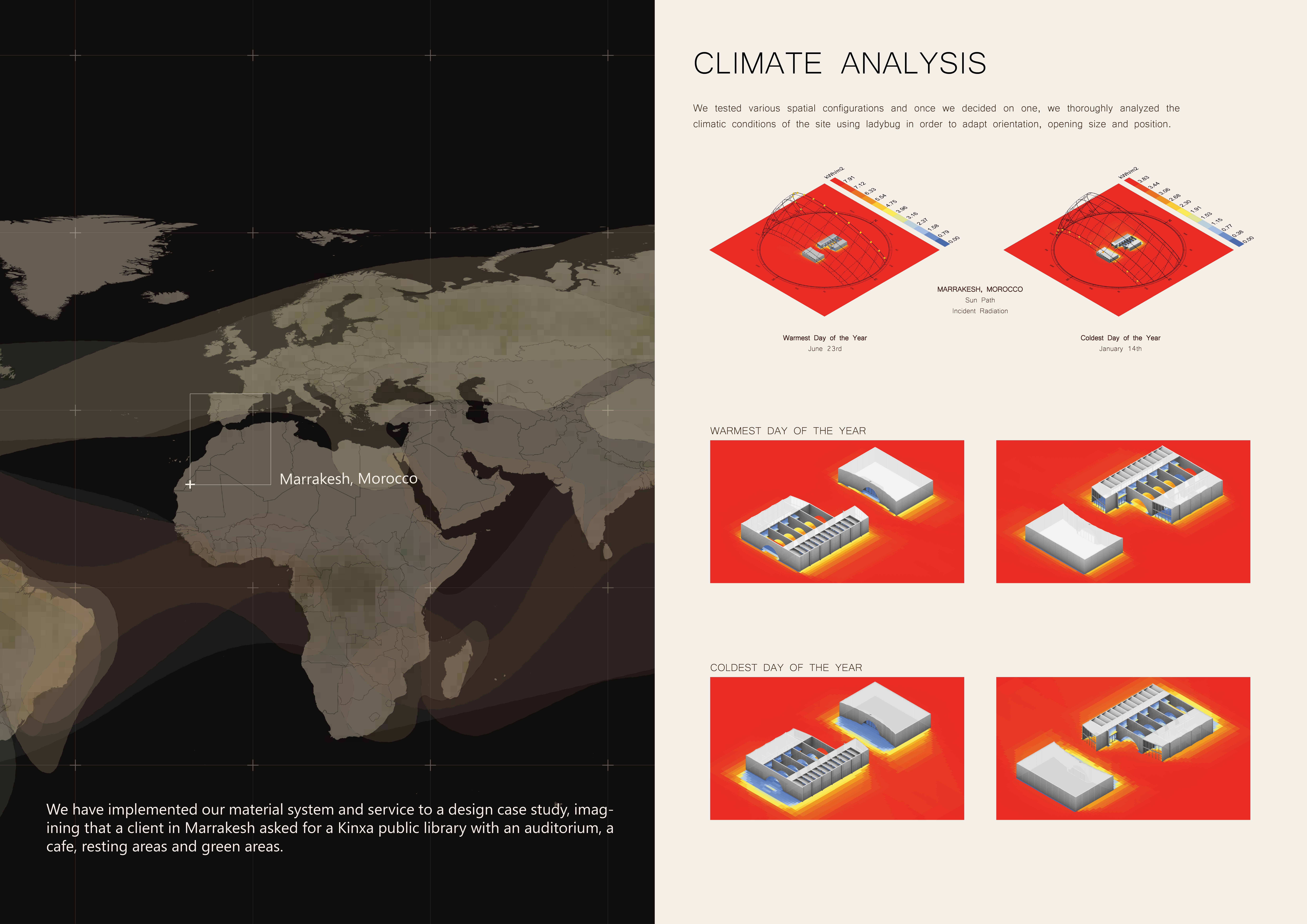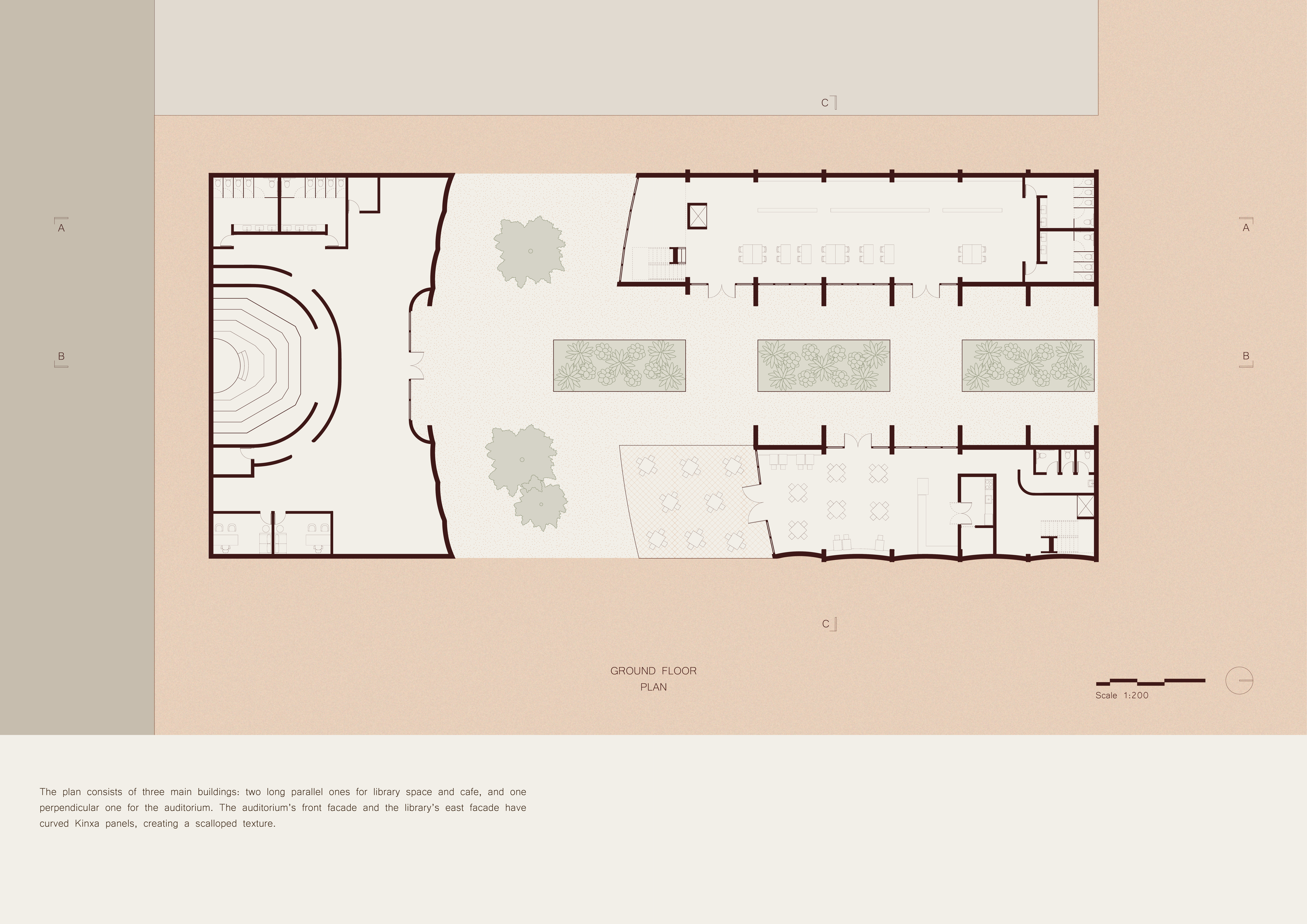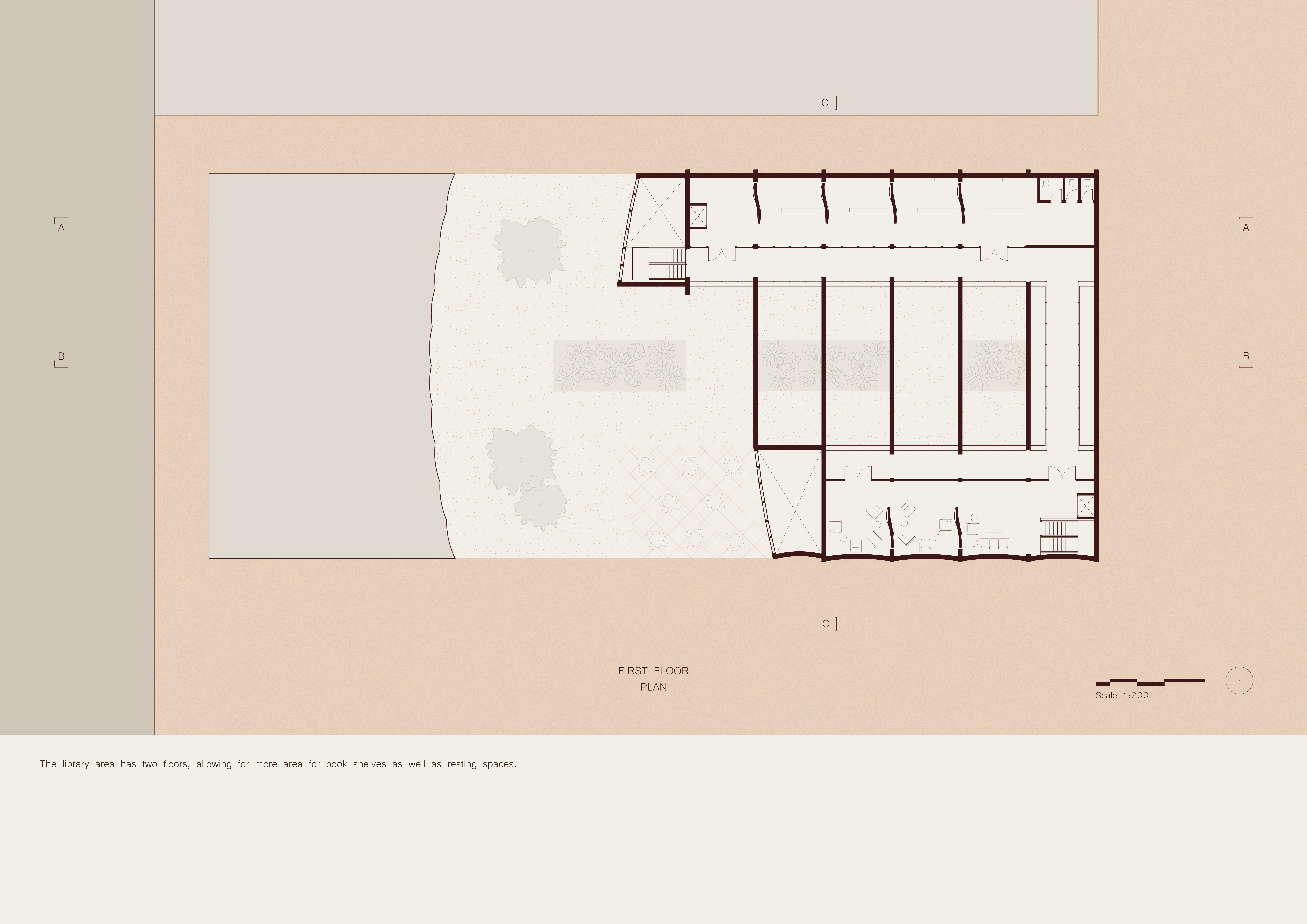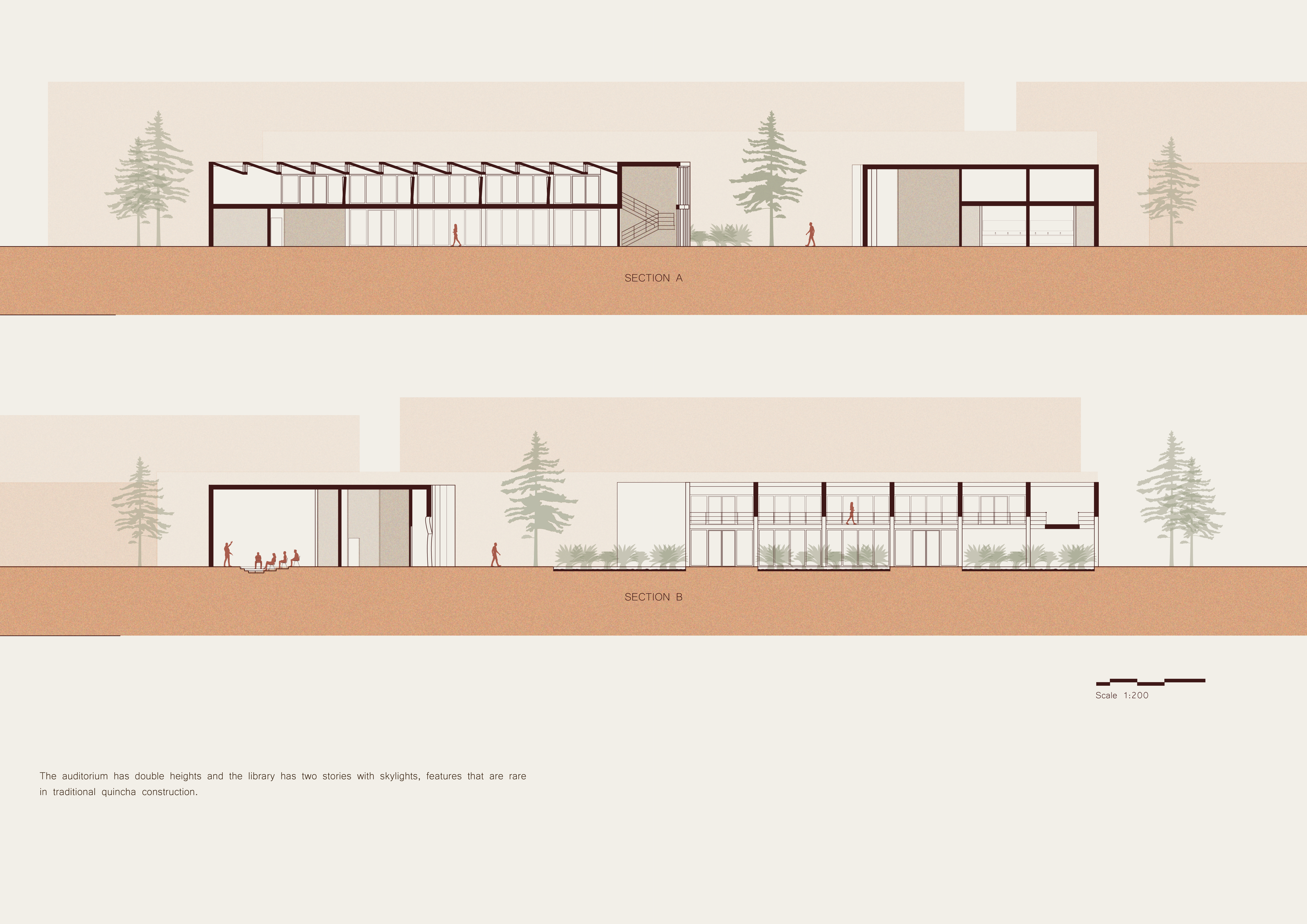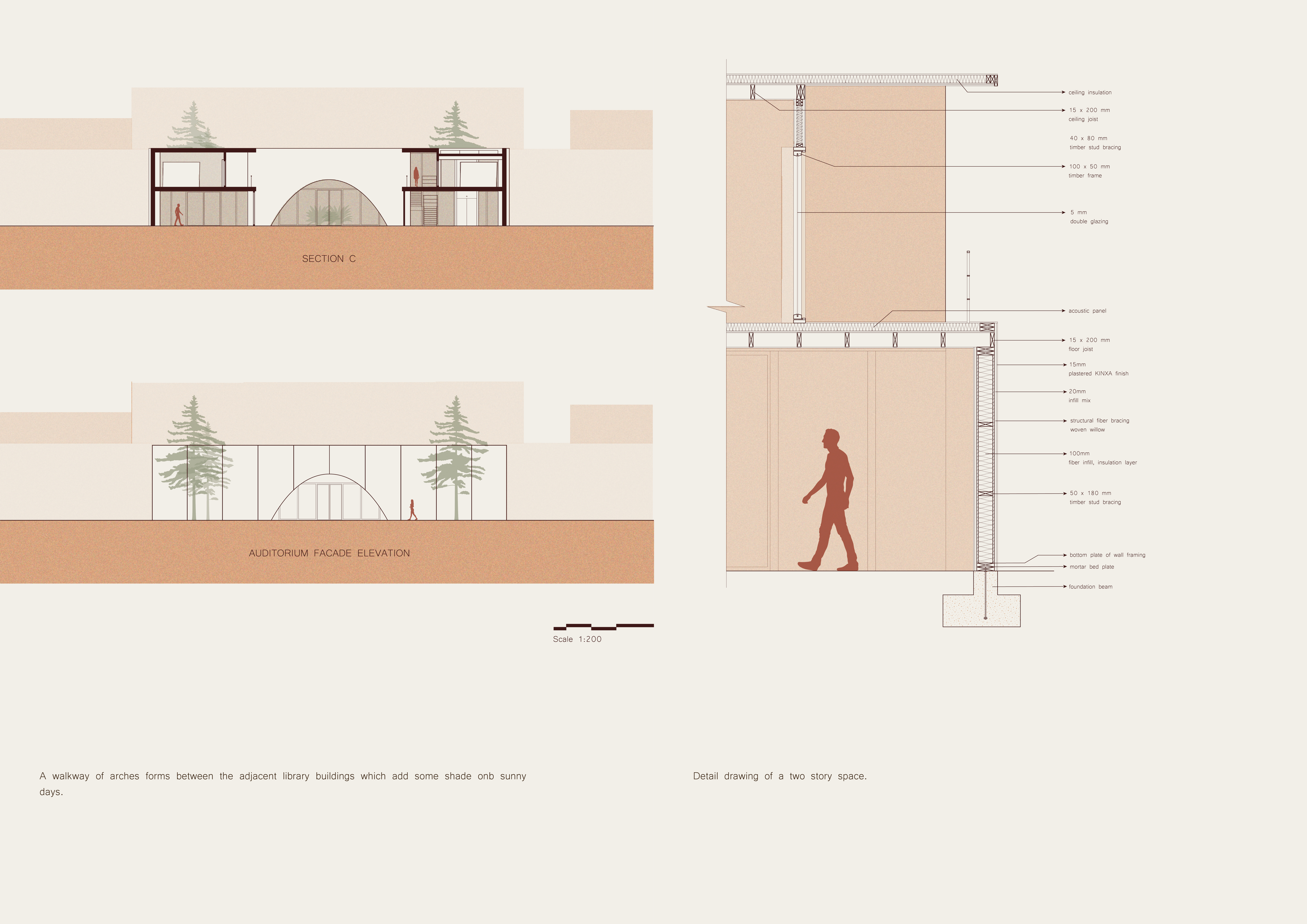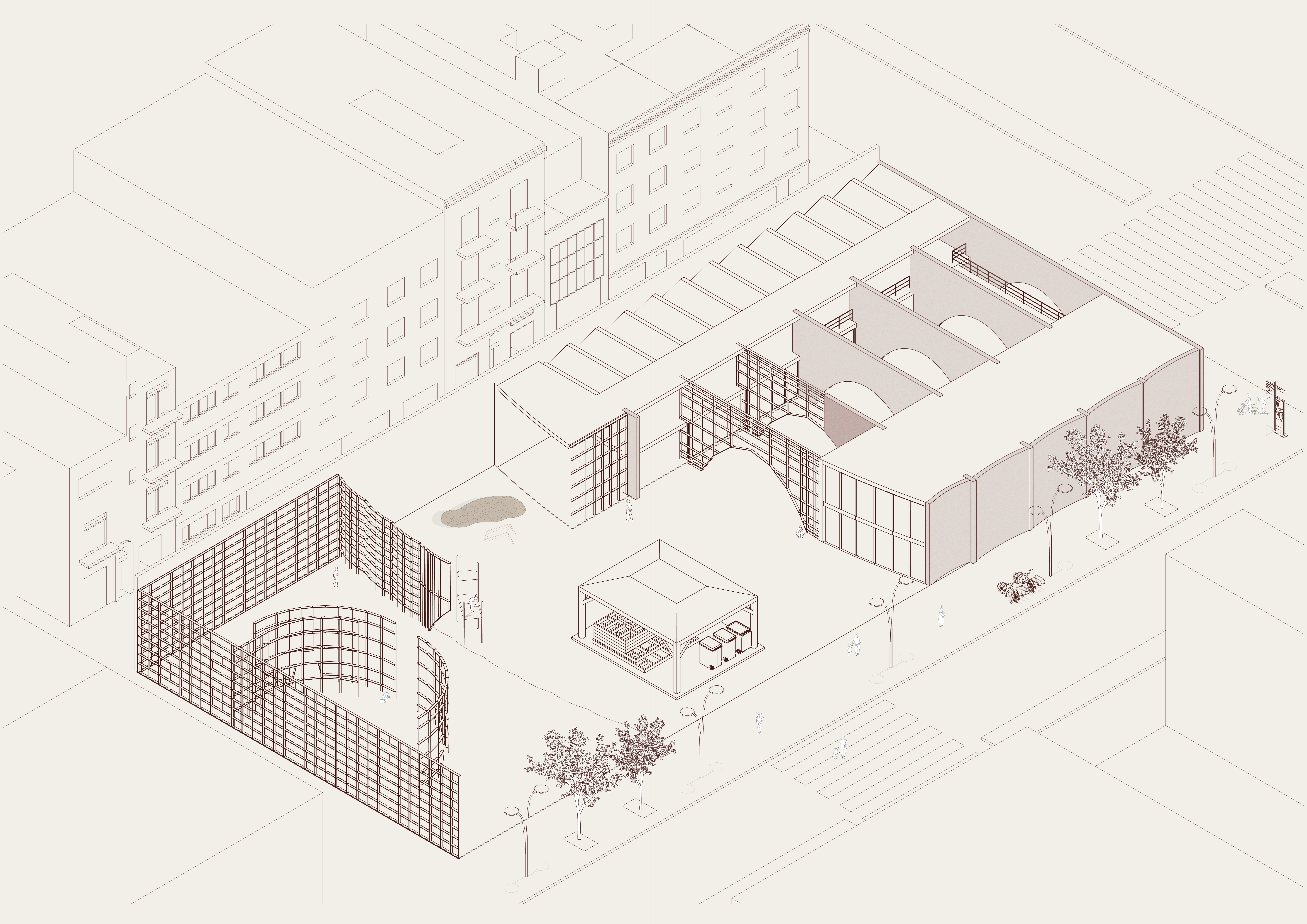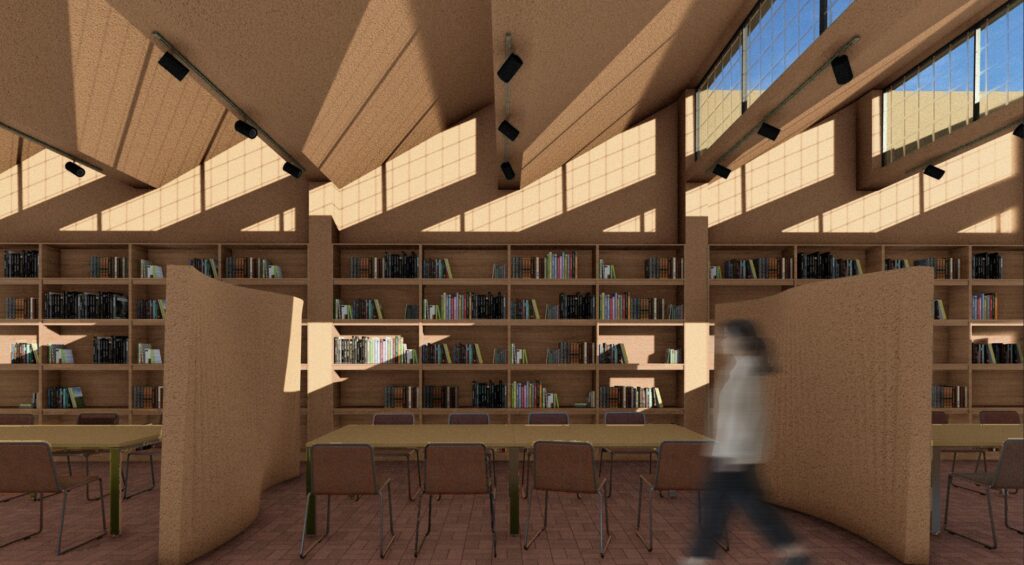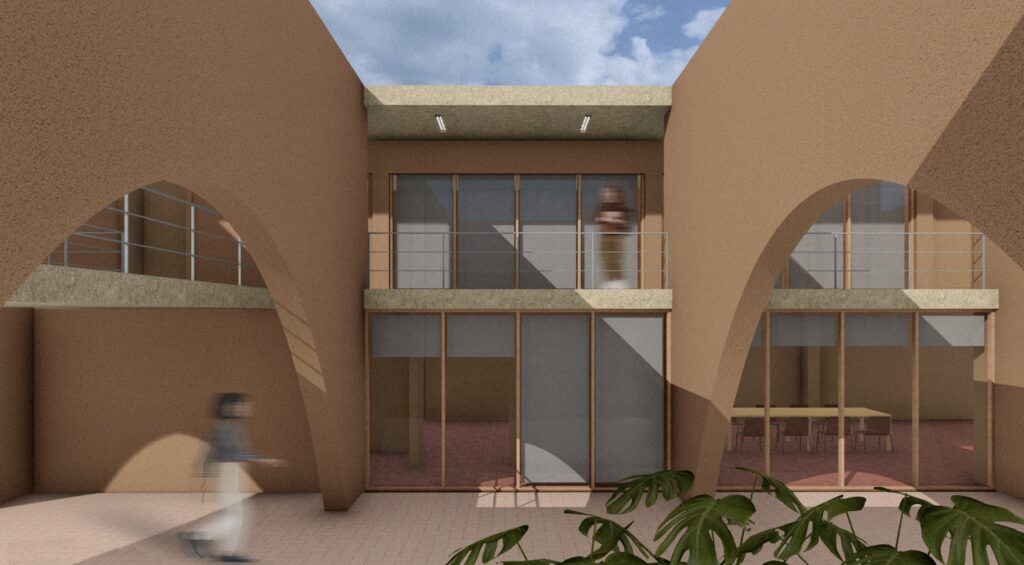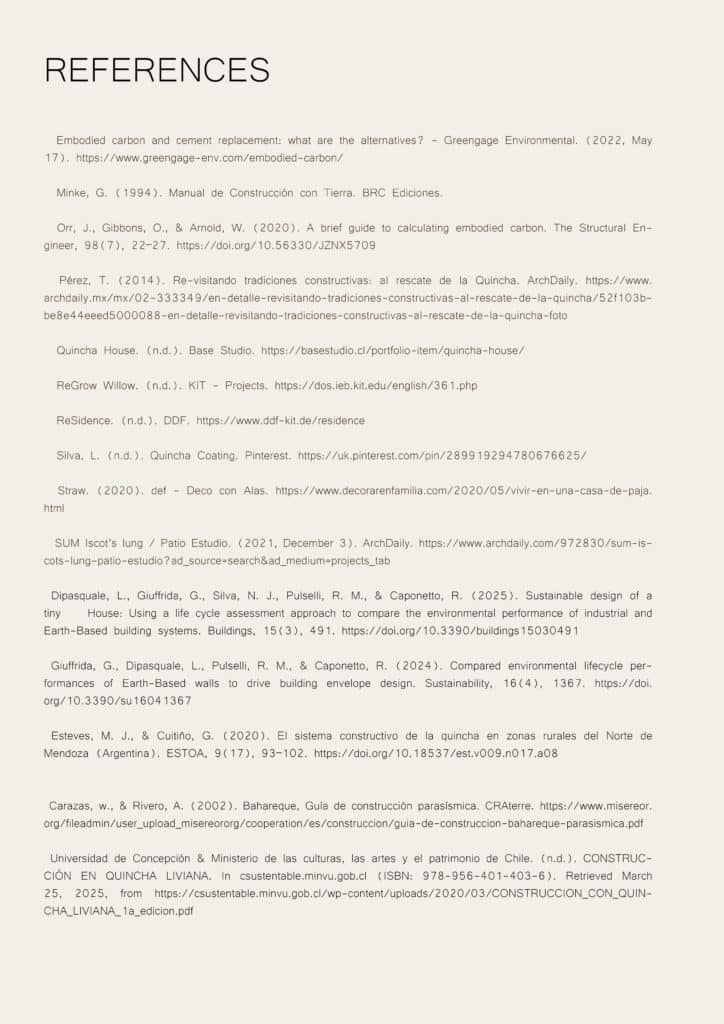Vernacular architecture has steadily lost relevance in contemporary practice. Industrialized construction methods, aesthetic shifts, and the pursuit of perceived reliability in materials like concrete and steel have overshadowed traditional techniques. However, these modern materials often come at a high environmental cost. Among the overlooked methods is quincha, a construction technique common in Latin America. It uses a wood or cane framework filled with natural fibers and covered with a soil-clay plaster. Though simple and sustainable, quincha is often dismissed for its rectilinear form, low-cost association, and limited design flexibility.
KINXA is a contemporary reinterpretation of quincha developed within the Digital Matter research studio. It aims to modernize this vernacular method while preserving its sustainable and community-centered spirit. The system is composed of three main elements: a redesigned substructure, a site-specific infill, and customizable finishes. KINXA replaces traditional timber bracing with locally sourced fiber elements that vary depending on the project’s location, lowering the carbon footprint while maintaining structural integrity and flexibility.
A soil testing methodology informs the creation of a custom infill mix tailored to each site’s conditions and available resources. This mix is shot-clayed into the structure and finished with plasters selected from a range of textures and colors. The recipe has undergone multiple iterations to enhance its resistance to water, abrasion, and weathering, increasing durability across different climates.
Developed through prototyping and material experimentation, KINXA brings together digital fabrication, computational design, and vernacular wisdom. It proposes a regenerative, low-carbon, and locally rooted construction method that reconnects architecture with ecological intelligence. By reintroducing and refining traditional practices, KINXA offers a new architectural language grounded in resilience, material efficiency, and cultural continuity.
